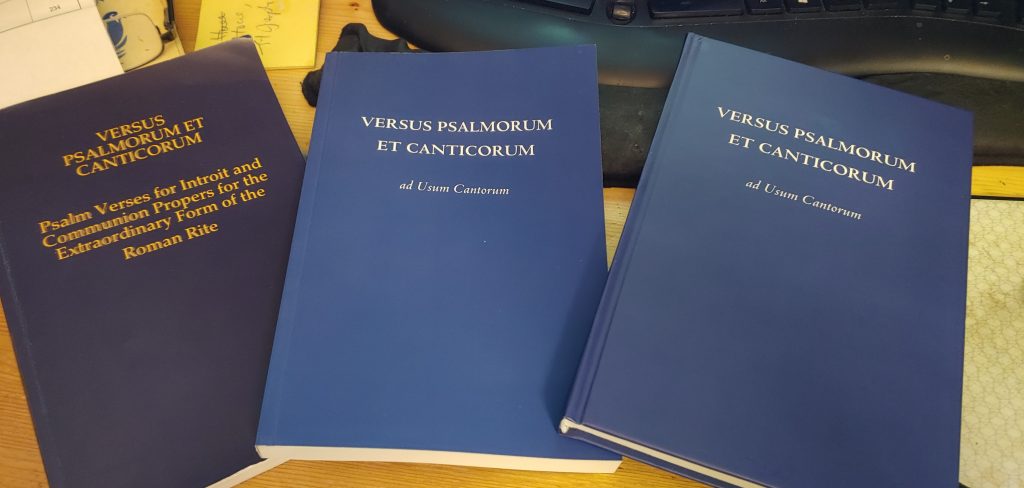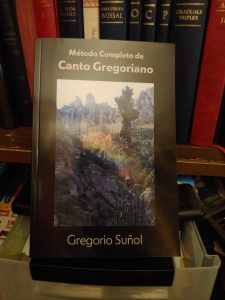The USCCB Committee on Doctrine has offered some help in evaluating hymn lyrics for use in Catholic worship. The paper, “Catholic Hymnody at the Service of the Church” (PDF), lists several kinds of deficiencies that are apparent in the texts of some songs, and gives examples from a few hymns selected out of the 1000 that the committee’s members read.
The bishops’ work takes its model from a 1997 project in which an ad hoc committee led by Abp. Daniel Buechlein examined catechetical materials and described ways in which they were presenting the Catholic faith in a vague, imbalanced, or misleading way. Following the example of that report, the Committee on Doctrine listed these weaknesses in hymns:
- Deficiencies in the presentation of eucharistic doctrine
- Deficiencies in the presentation of trinitarian doctrine
- Deficiencies in the doctrine of God and His relation to humans
- A view of the Church that sees her as essentially a human construction
- Doctrinally incorrect views of the Jewish people
- Incorrect Christian anthropology
Here are some ways that texts fall short in these areas:
- In eucharistic doctrine, texts that speak of receiving “bread and wine” without expressing that they are changed into the body and blood of Christ
- In trinitarian doctrine, texts that avoid speaking of the Father, the Son, and the Holy Spirit, but instead speak of “God”, “Christ”, and “the Spirit”, as though Christ or the Holy Spirit were not also God; as the committee report frankly puts it, this is Arianism
- In the doctrine of God, expressions that obscure the transcendence of God and seem to make him come into being as a result of human actions
- In ecclesiology, texts that speak of human beings creating the Church, rather than the Church as God’s creation
- In relation to the Jewish people, songs that imply falsely that the entire Jewish people rejected Christ, something which the Church does not believe or teach.
The report quotes from thirteen hymns as examples of these defects, including works by Owen Alstott, Mary Louise Bringle, Sydney B. Carter, Ruth Duck, Delores Dufner, Bernadette Farrell, Fred Pratt Green, Marty Haugen (1, 2, 3), Bob Hurd, and Carmen Scialla.
In regard to eucharistic doctrine, the area which the report says had the most common and most serious deficiencies, the report also listed examples of hymns that avoided such errors. While some of them have their own weaknesses of text or music, I’m pleased to see that the committee was in effect confirming among them that the Church’s heritage of Latin hymns is suitable for mainstream parish use:
- Ave Verum Corpus (Pope Innocent VI, c. 1362)
- Taste and See (Moore, 1983)
- Gift of Finest Wheat (Westendorf, 1976)
- Seed Scattered and Sown (Feiten, 1987)
- I Am The Bread Of Life (Toolan, 1966)
- One Bread One Body (Foley, 1978)
- Eat This Bread (Taize/Batastini, 1984)
- Look Beyond (Ducote, 1979)
- At That First Eucharist (Turton, 1881)
- O Sacrament Most Holy (Udulutsch, based on the Raccolta, 1958)
- O Salutaris Hostia (Thomas Aquinas, c. 1274)
- Adoro Te (Thomas Aquinas, c. 1274)
- At the Lamb’s High Feast (Campbell, based on Ad regias Agni dapes, 1849)
Thanks to the Committee on Doctrine and its chairman, Bp. Kevin Rhoades (Fort Wayne – South Bend) for this helpful contribution to the Church’s liturgical work.


